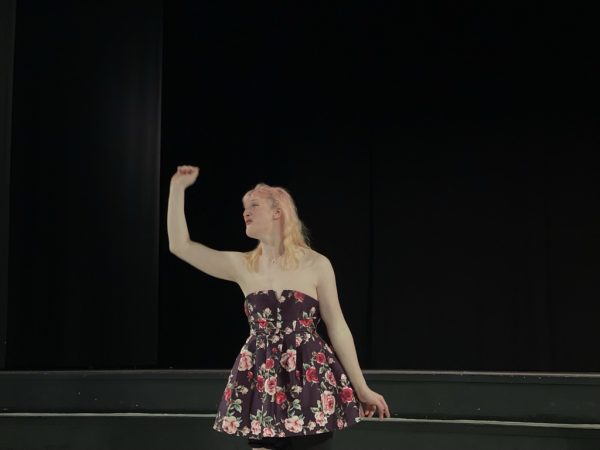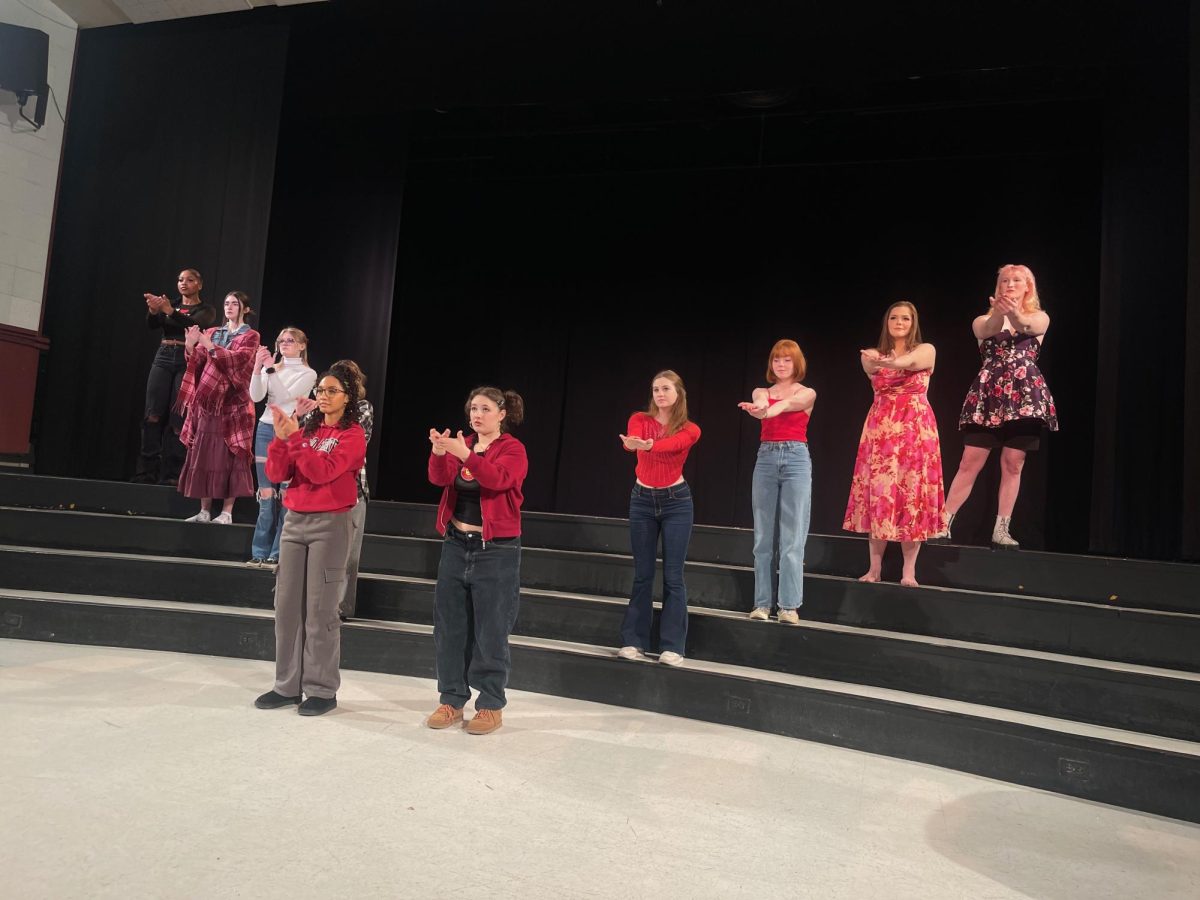“I bet you’re worried. We were worried. We were worried about vaginas,” the opening line prepared audiences to see a show. A show that made me think as it sometimes felt like a Ted-Talk, and sometimes felt like a story being told. However, there was one common thread throughout the show: the vagina.
Presented by the Gender and Sexuality Equity Coalition; The Women’s Program, and directed by theatre arts major Yamileth Lomeli, the Vagina Monologues premieres at Chico State. Typically, this show is done annually by the program, with exception of last year. This is Lomeli’s second-time directing at Chico State, with the first being this past December for the Music, Theatre and Dance department’s Student Directed One-Acts. In this set of performances, she directed “El Soldado Razo,” the first Spanish play performed at Chico State. Like “El Soldado Razo,” this piece shares a similar beauty, “It has been tragically beautiful in a way that I don’t know if I can find words to express how grateful I am for this experience, how challenging this experience has been, and how blessed I am given this opportunity,” Yamileth said.
The Vagina Monologues was originally written by V (formerly Eve Ensler), as an activist piece that debuted in 1994. It initially appeared Off-Broadway for five years in New York City, before touring the rest of the United States. New York Times called it, “the most important piece of political theater of the last decade. ”
Lomeli’s adaptation of the production hit’s the heartstrings in a way that only college-students could, and that’s simply because they’re college students. They don’t know these stories, yet they live and breathe their souls into the character’s. This is what the cast of 10 female-identifying actresses did best. One prime example of this is Mahraya Davis. Davis’ doesn’t have to be an actress to portray her monologue. She has been an activist, a fighter, an advocate, a champion, a defender and a demonstrator. Her performance was a stand-out in this show, because of the way the silence supported the words she spoke, and assisted in the understanding of the stories that she was telling. A pause served as more than a stop, but rather a moment of reflection.

One acting performance that blew me away was Megan Mullarky’s production of the monologue, “The Flood,” about an older woman who experiences an orgasm and then never seeks to do it again. Her costume combined a beaded necklace, a red shawl, a denim jacket and a red blouse – perfectly targeting the character of an older woman. She flawlessly executed the telling of what stigmatism from her youth did to her, growing up in a space where touching her own body was unacceptable. As she recounted the feelings of shame when she left organismal fluid on her boyfriend’s white car seats,I had almost forgotten I was watching a show. She expressed getting her tubes tied, leaving with “… you’re the first person I ever told about this, and I feel a little better,” as if they were her own words.

(Damon Gallegos)
Similar to Davis’ performance, another performance found beauty in being raw and beautiful, and that was of Kayla Roehrig. Roehrig told the heart wrenching story of a girl, who was originally born a boy called, “They Beat the Girl Out of My Boy.. Or So They Thought.” This story told, in exquisite detail, the suffering that can come with those on a journey to be who they truly are. “I live now in the female zone, but you know how people feel about immigrants,” escaped Roehrig’s mouth, striking the heart of the audience. Seeing Roehrig’s raw and exquisite telling of the monologue, left every moment of silence to be deafening.

Lighting is bare with this production, leaving the audience dimly lit, and the remainder of the space in a mid-light, not too bright or too dark. The light plot as well was bare, with lights dimming, edging the point of turning off, and then turning back on to execute the next monologue. This production doesn’t have a designated lighting designer, but rather has Soid Estrada, a theatre arts student and member of the School of the Arts crew turning up and down the lights.
There are no sets in this production, aside from the furniture already in the room including a baby grand piano, the stairs leading to the stage, the curtains, the wings, a classroom tech lectern and two side stages. Props were also barren in this production, with most of the actresses pantomiming different garments and objects; and the addition of one loud band room chair.
There is also no designated costume designer in this production. Lomeli expressed that she wanted the performers to wear what they felt most confident in, leading to a myriad of pinks, reds, whites, purples, grays and blacks. The costumes all fitted the character’s and I feel brought a sort of controlled chaos to the show.
My thoughts on this show compliment Lomeli’s goal for audiences, “My hope would be that they feel something by the dnd of this and that they learn something they didn’t know before and that it touches their heart, whether it be in a comedic way or a moving way, and I hope it just impacts them in general.”
I would encourage anyone to see this show—everyone. This show made me think, it also made me laugh, it made my heart break, it made me wonder, it made me want to fight, it made me think about a lot of things. As a reporter, my job is to sit down and review the show; but that was nearly impossible, this show was too powerful. Not everything about this show was perfect. However, with a show like this you don’t need fancy sets, you don’t need extravagant lighting—you need real people to tell the story. You need people who are going to take a story that might not be theirs, and breathe life into it. That is just what Lomeli’s production of the Vagina Monologues does.
Damon Gallegos can be reached at orionmanagingeditor@gmail.com








